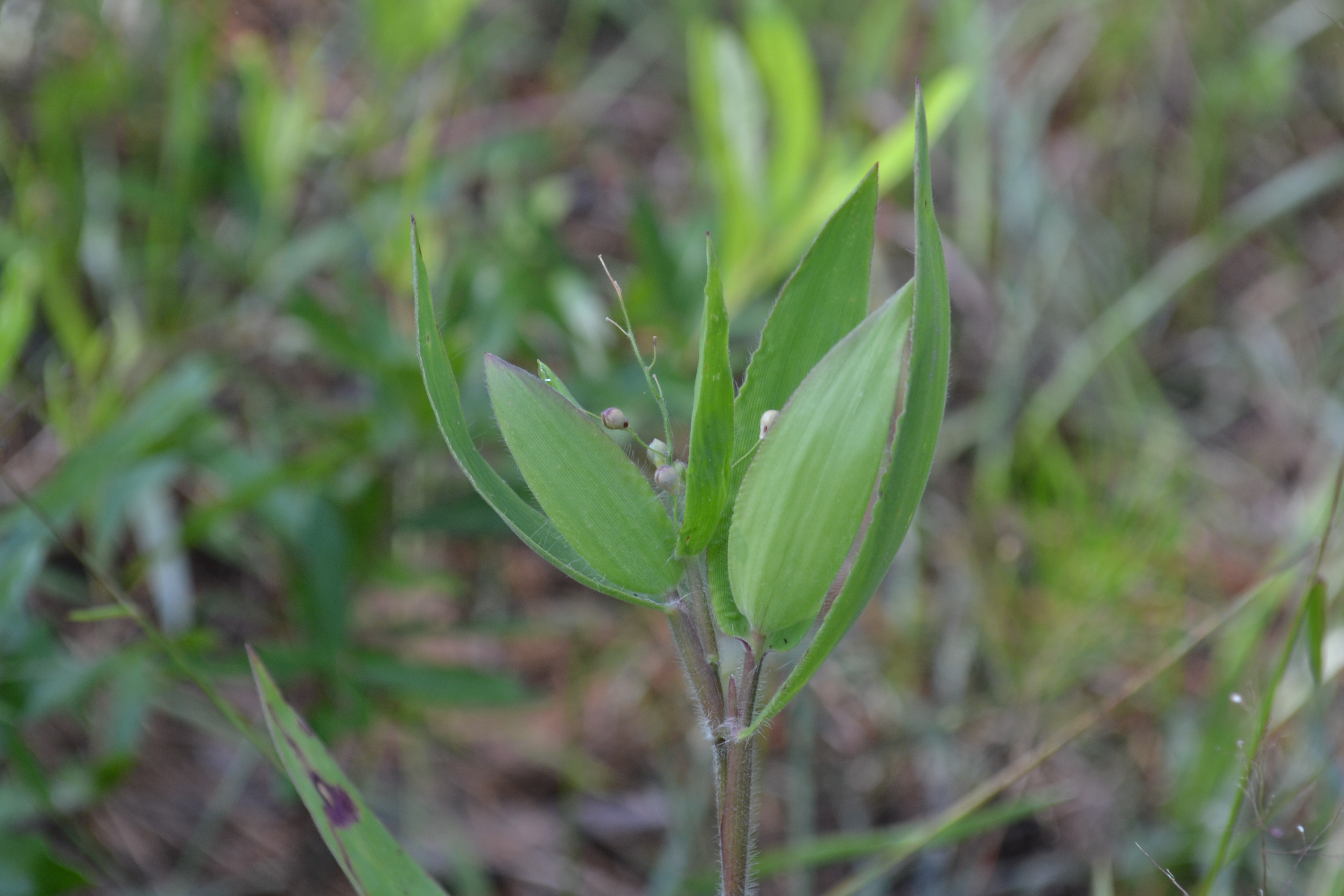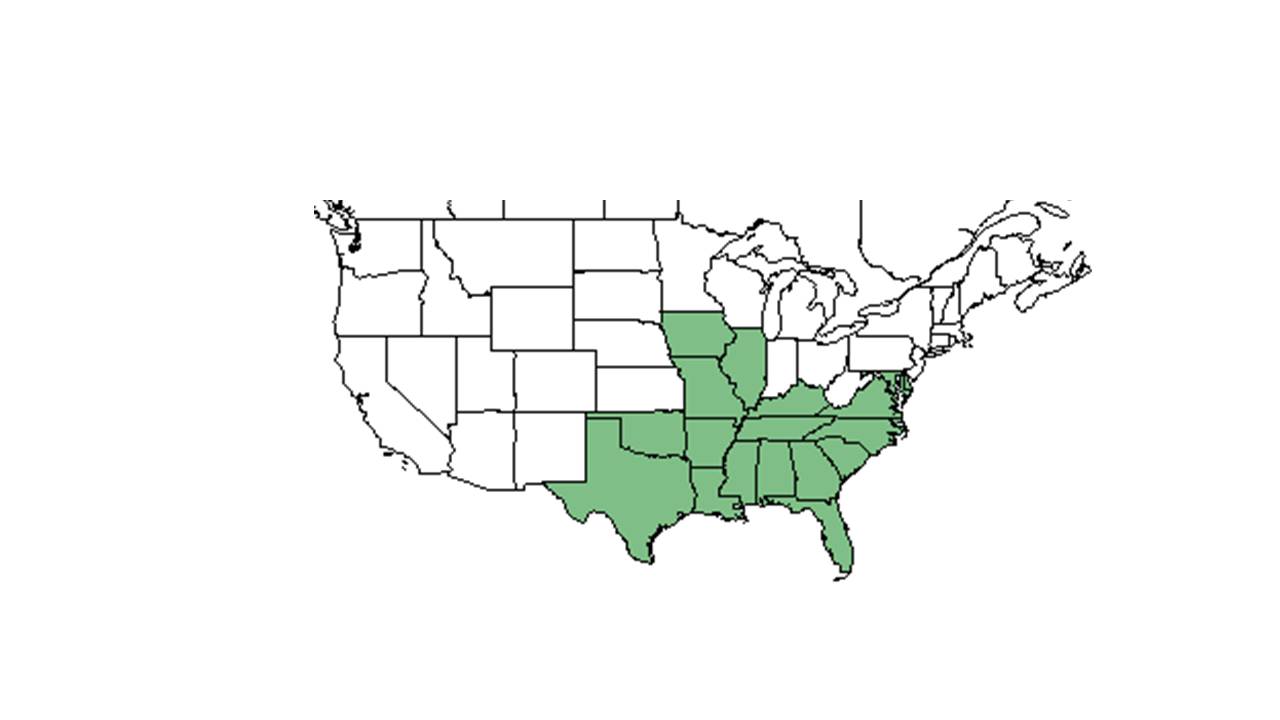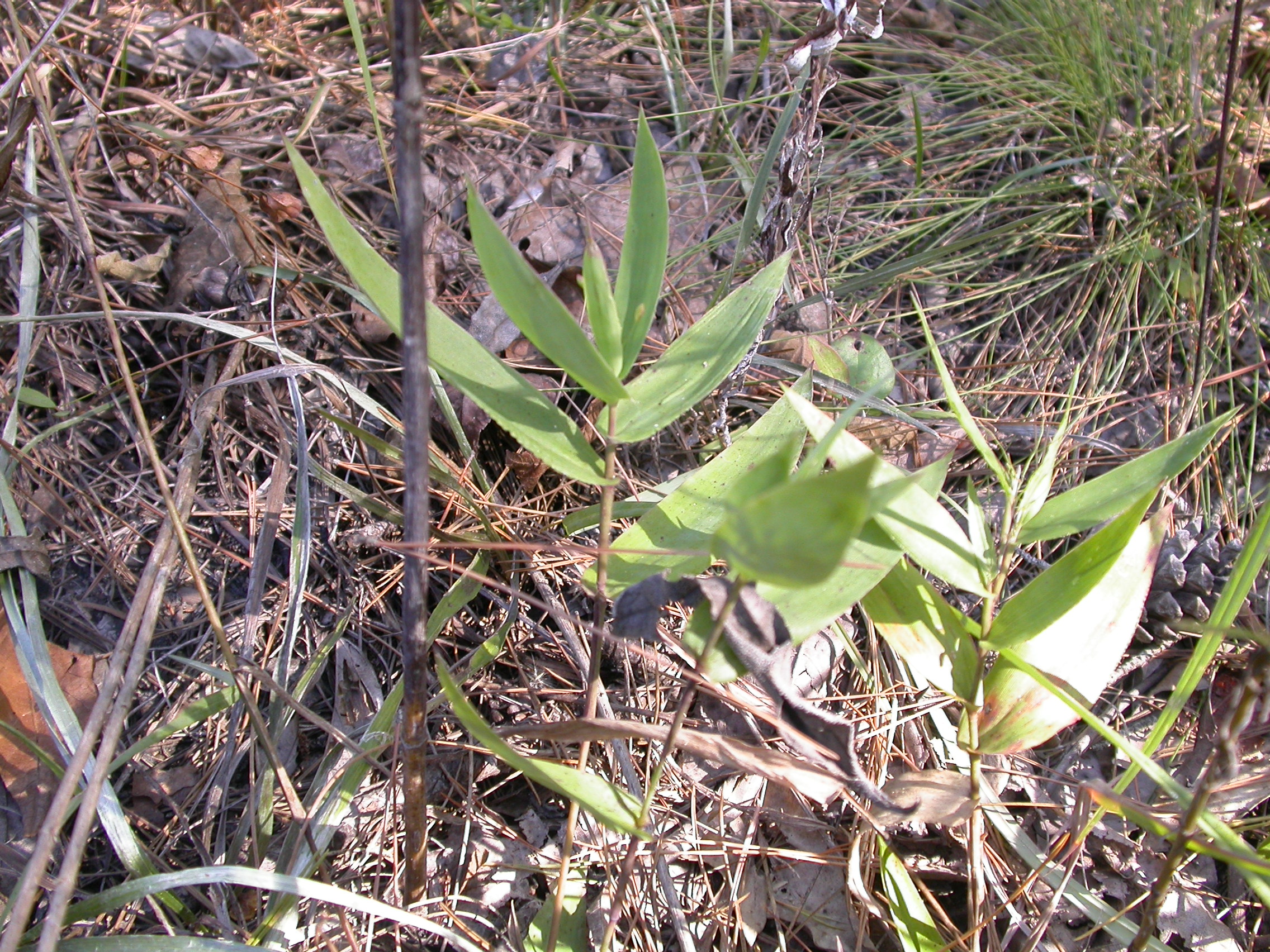Difference between revisions of "Dichanthelium ravenelii"
Ruthstetler (talk | contribs) (→Description) |
Ruthstetler (talk | contribs) |
||
| Line 29: | Line 29: | ||
==Ecology== | ==Ecology== | ||
===Habitat=== <!--Natural communities, human disturbed habitats, topography, hydrology, soils, light, fire regime requirements for removal of competition, etc.--> | ===Habitat=== <!--Natural communities, human disturbed habitats, topography, hydrology, soils, light, fire regime requirements for removal of competition, etc.--> | ||
| − | + | ''D. ravenelii'' can be found in calcareous coastal hardwood hammocks, calcareous glades, edges of limesinks, pine-oak sandhills, live oak woods, mixed deciduous forests, upland longleaf and shortleaf pine native communities, banks of hardwood forested rivers (FSU Herbarium). It occurs in a wide range of soil conditions from deep sands, to clay, sandy loam, sandy clay, and forest humus (FSU Herbarium). Can occurs in highly disturbed areas, particularly if sandy (FSU Herbarium). Tolerates full light to partially shaded conditions (FSU Herbarium). Apparently limited to well-drained areas even if near wetlands or water bodies (FSU Herbarium). It thrives in frequently burned areas (FSU Herbarium). | |
| + | |||
===Phenology=== <!--Timing off flowering, fruiting, seed dispersal, and environmental triggers. Cite PanFlora website if appropriate: http://www.gilnelson.com/PanFlora/ --> | ===Phenology=== <!--Timing off flowering, fruiting, seed dispersal, and environmental triggers. Cite PanFlora website if appropriate: http://www.gilnelson.com/PanFlora/ --> | ||
It flowers April-September and fruits April-October in Florida (FSU Herbarium). | It flowers April-September and fruits April-October in Florida (FSU Herbarium). | ||
Revision as of 17:58, 13 July 2015
| Dichanthelium ravenelii | |
|---|---|

| |
| Photo by Kevin Robertson | |
| Scientific classification | |
| Kingdom: | Plantae |
| Division: | Magnoliophyta - Flowering plants |
| Class: | Liliopsida – Monocotyledons |
| Order: | Cyperales |
| Family: | Poaceae ⁄ Gramineae |
| Genus: | Dichanthelium |
| Species: | D. ravenelii |
| Binomial name | |
| Dichanthelium ravenelii (Scribn. & Merr.) Gould | |

| |
| Natural range of Dichanthelium ravenelii from USDA NRCS Plants Database. | |
Contents
Description
Common Name: Ravenel's rosette grass
Synonym Name: Panicum ravenelii Scribn. & Merr.
Dichanthelium ravenelii is a perennial graminoid.
Distribution
TX, OK, MO, IA, IL, KY, TN, AR, LA, MS, AL, FL, GA, SC, NC, VA, MD, DE[1]
Ecology
Habitat
D. ravenelii can be found in calcareous coastal hardwood hammocks, calcareous glades, edges of limesinks, pine-oak sandhills, live oak woods, mixed deciduous forests, upland longleaf and shortleaf pine native communities, banks of hardwood forested rivers (FSU Herbarium). It occurs in a wide range of soil conditions from deep sands, to clay, sandy loam, sandy clay, and forest humus (FSU Herbarium). Can occurs in highly disturbed areas, particularly if sandy (FSU Herbarium). Tolerates full light to partially shaded conditions (FSU Herbarium). Apparently limited to well-drained areas even if near wetlands or water bodies (FSU Herbarium). It thrives in frequently burned areas (FSU Herbarium).
Phenology
It flowers April-September and fruits April-October in Florida (FSU Herbarium).
Seed dispersal
Seed bank and germination
Fire ecology
This species has been found in previously burned pine woods and annually burned savanna, so it is fire tolerant (FSU Herbarium).
Pollination
Use by animals
Diseases and parasites
Conservation and Management
Cultivation and restoration
Photo Gallery
References and notes
Florida State University Robert K. Godfrey Herbarium database. URL: http://herbarium.bio.fsu.edu. Last accessed: June 2014.
Collectors: Loran C. Anderson, Charles N. Horn, R. Kral, Raymond Athey, Sidney McDaniel, William J. Clark, H. R. Reed, D J Banks, Ken E. Rogers, Steve Furr, A. E. Radford, R. L. Wilbur, R.K. Godfrey, H. Kurz, Gary R. Knight, R. Komarek, and R. A. Norris.
States and Counties: Alabama: Baldwin and Lee. Florida: Franklin, Jackson, Leon, Liberty, and Wakulla. Georgia: Ben Hill, Dougherty, Grady, and Thomas. Kentucky: Crittenden. Louisiana: Jackson and Ouachita. Mississippi: Lauderdale and Pearl River. South Carolina: Greenwood and Laurens. Tennessee: Knox. Texas: Van Zandt.
- ↑ NRCS Plants Databasehttp://www.nrcs.usda.gov/wps/portal/nrcs/main/national/programs/
